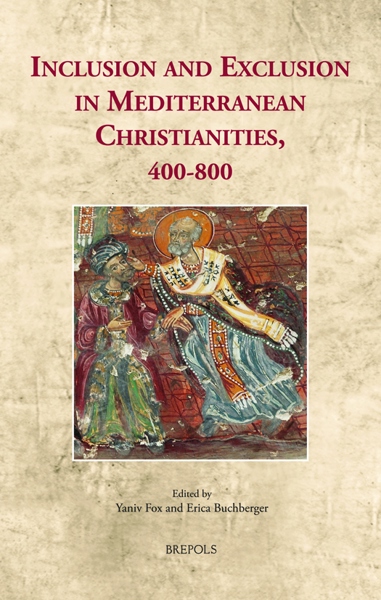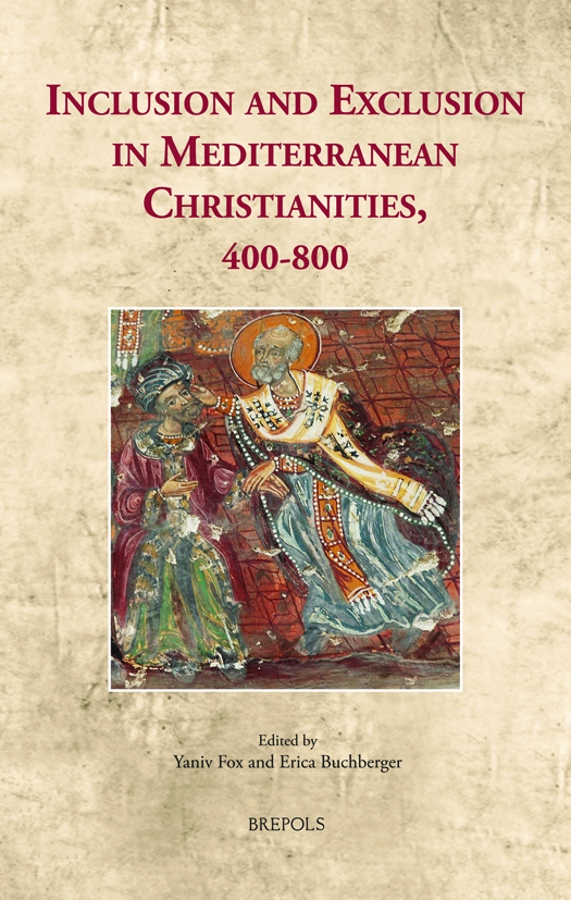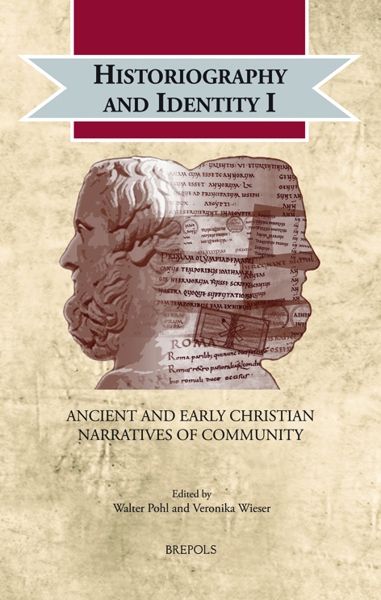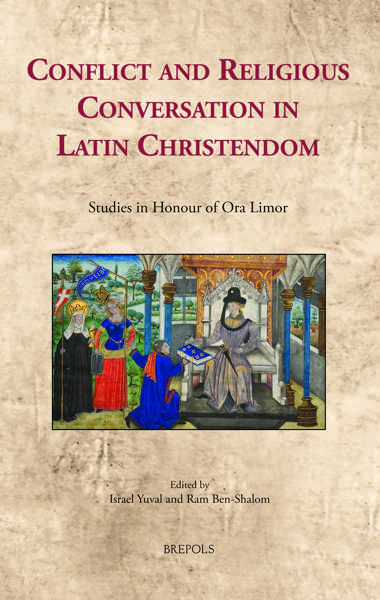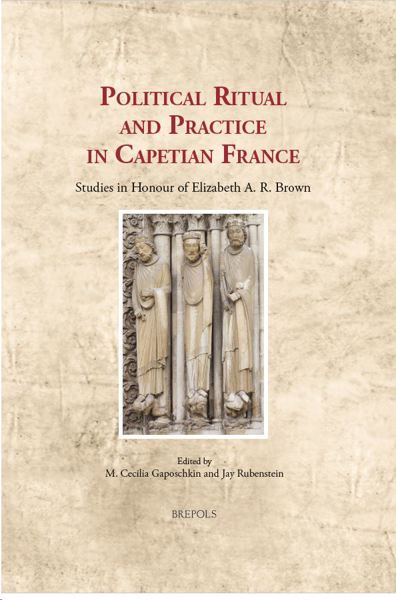
Inclusion and Exclusion in Mediterranean Christianities, 400-800
Yaniv Fox, Erica Buchberger (eds)
- Pages: vii + 293 p.
- Size:156 x 234 mm
- Language(s):English
- Publication Year:2019
- € 90,00 EXCL. VAT RETAIL PRICE
- ISBN: 978-2-503-58113-2
- Hardback
- Available
- € 90,00 EXCL. VAT RETAIL PRICE
- ISBN: 978-2-503-58114-9
- E-book
- Available
Focused on the medieval Mediteranean (400 - 800 CE), this volume will explore the various ways in which religious groups, intellectual circles, political elites, and societies as a whole chose to define themselves through exclusive and inclusive practices.
“(…) Buchberger and Fox deliver a timely contribution to the field, one whose essays may help engender paradigm shifts in our exploration of inclusion-exclusion as a historical phenomenon.” (Michael J. Kelly, in Speculum, 96/3, 2021, p. 822)
“The scope of this volume, moving from England to Palestine, is impressive (…)” (Stephen Joyce, in Parergon, 38/1, 2021, p. 219)
“In short, this is an excellent collection of thought-provoking essays deserving of a wide audience.” (Samuel Cohen, in The Medieval Review, 21.12.21)
“There is much to recommend in this stimulating volume which will serve as an invaluable resource for those studying not only Mediterranean Christianities between the fifth and ninth centuries but also for those with an interest in strategies of inclusion and exclusion
more broadly.” (Meredith Cutrer, in Ceræ: An Australasian Journal of Medieval and Early Modern Studies, 8, 2021, p. 85)
Yaniv Fox is senior lecturer of late antique and early medieval history at Bar-Ilan University (Israel). He is author of Power and Religion in Merovingian Gaul: Columbanian Monasticism and the Frankish Elites (Cambridge: Cambridge University Press, 2014).
Erica Buchberger is Assistant Professor of Ancient and Medieval History at the University of Texas Rio Grande Valley. She is the author of Shifting Ethnic Identities in Spain and Gaul, 500-700: From Romans to Goths and Franks (Amsterdam: Amsterdam University Press, 2017).
The fifth to the ninth centuries were a formative period around the Mediterranean, in which new forces were redefining traditional social divisions. This volume will look at these centuries through the lens of inclusion and exclusion as social forces at work on the self, the community, and society as a whole. For late antique and early medieval societies, inclusion and exclusion were the means of redrawing the boundaries of cultural and political discourse, and ultimately, of deciding how resources — material, spiritual, and intellectual — were allocated.
This is the first of two volumes to explore inclusion and exclusion as processes affecting Mediterranean communities. Contributions to the present volume look at how distinctions were fostered through both space and text, along ethnic and religious lines, and at the level of both ecumenical councils and individual friendships. By examining a wide range of social and cultural phenomena, from historiography and political partisanship to private religious worship and the performance of the feast, the chapters of this volume illustrate the exceptional range of ways that late antique and early medieval people negotiated their place in a changing world, and brought a new one into being.
Introduction — YANIV FOX
Part I: Literate Communities and their Texts
Frankish Redaction or Roman Exemplar? Revisions and Interpolations in the Text Liber Pontificalis — CARMELA VIRCILLO FRANKLIN
Reading Sin: Textual and Spatial Exclusion of Scholarly Communities in Late Antiquity — DIRK ROHMANN
Beowulf and the Textual Exclusion of Vikings in the Carolingian world — SHANE BJORNLIE
Part II: The Internal Dialogue of the Church
The Theme of Late-Ancient Inner-Church Discord Reconsidered — YONATAN LIVNEH
Inclusion and Exclusion in the Writings of Anthony of Choziba — DANIEL NEARY
Constructing a Church of Councils: The Heresy of Conciliar Rejection in Eighth-Century Palestine — PETER SCHADLER
Part III: Persecution and Dissent
Excluding Heretics: Intolerant Bishops and Tolerant Vandals — ÉRIC FOURNIER
Ethnicity, Christianity and Groups: Rethinking Gothic Homoian Christianity in the Post-Imperial West — ROBIN WHELAN
Gothic Identity and the ‘Othering’ of Jews in Seventh-Century Spain — ERICA BUCHBERGER
The Pogrom that Time Forgot: The Ecumenical Anti-Jewish Campaign of 632 and its Impact — THOMAS J. MACMASTER
Part IV: Elite Networks
Aristocrats, Christians, and Barbarians at the Banquet: Food Practices, Inclusion and Exclusion in Fifth-Century Gaul According to Sidonius Apollinaris — EMMANUELLE RAGA
Inclusion and Exclusion of ‘Barbarians’ in the Roman Elites of the Fifth Century: A Case of Aspar’s Family — ALEKSANDER PARADZINìSKI
***
Conclusions — CHRIS WICKHAM
Index
